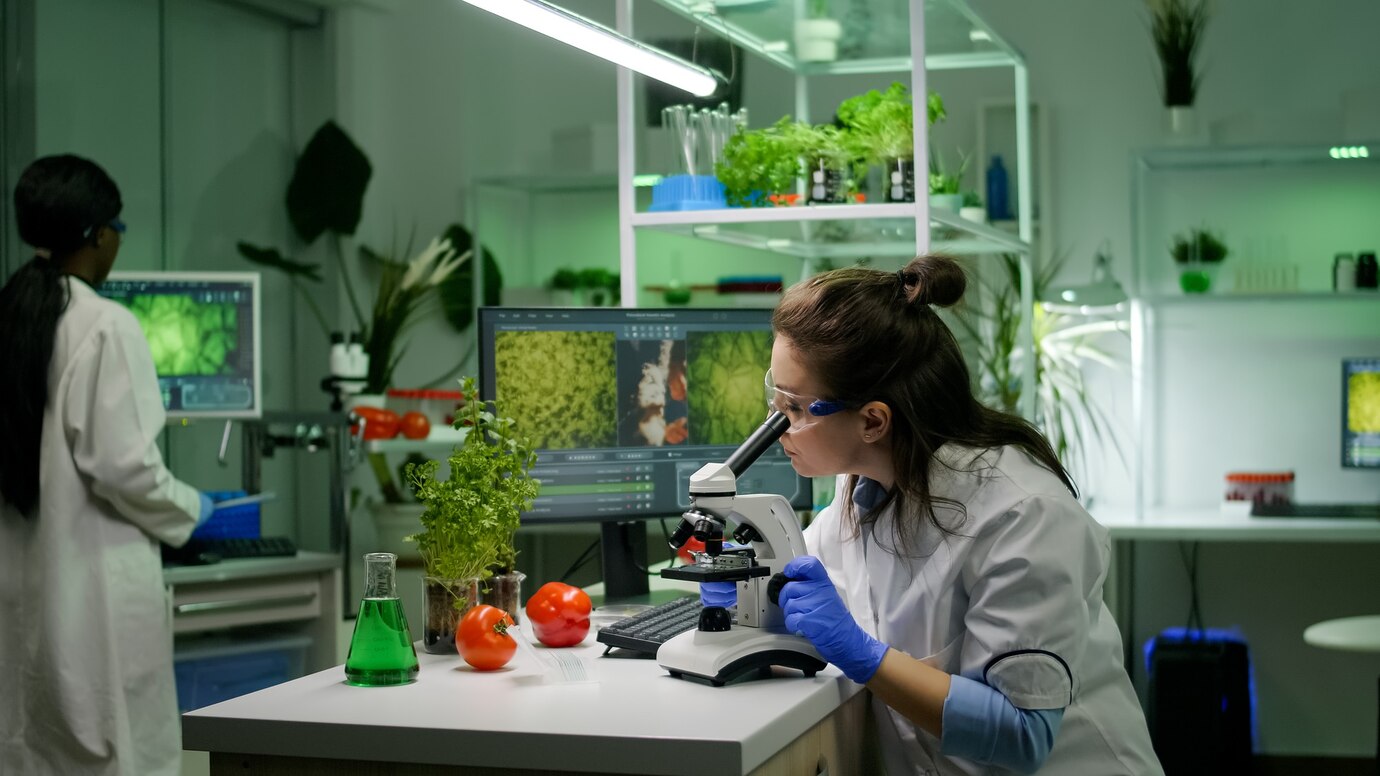Food Safety Management System Audit Service

Food safety is an essential aspect of any food establishment. Whether you’re running a restaurant, a catering service, or a food manufacturing plant, maintaining high food safety standards is crucial for the safety and well-being of your customers. Not only does it help reduce customer complaints, but it also ensures that your business complies with regulations and receives a good rating from regulatory authorities.
This is where a robust Food Safety Management System (FSMS) audit comes into play. An FSMS audit helps you assess whether your current food safety practices are effective and if they align with industry standards. Moreover, when staff are trained properly in food safety and regulations, it results in a safer food environment, better customer satisfaction, and a positive reputation for your business.
In this blog, we’ll explore the importance of food safety management audits, the role of training, and the key certifications such as HACCP, GMP, ISO, and PIC Advanced Certification that can help your food establishment achieve the highest food safety standards.
Who Needs Food Safety Training?
In food establishments, it is essential for all staff, from kitchen workers to front-line servers, to receive training in food safety practices. This ensures that everyone is aware of the best practices for maintaining food safety and preventing contamination. A well-trained team is vital in fostering a culture of food safety, which can lead to:
Better Food Handling Practices:
Reduces the risk of foodborne illnesses.
Compliance with Regulations:
Ensures adherence to local and international food safety standards. Customer Satisfaction: Properly trained staff ensures high food quality and hygiene, leading to positive customer experiences.
Food Safety Training and Certification
- BFST (Basic Food Safety Training) is the foundation of any food safety program. This certification covers essential food safety topics, including temperature control, personal hygiene, cross-contamination prevention, and proper food storage.
- PIC Advanced Certification (Person in Charge) is designed for staff in supervisory or managerial roles. This certification teaches them how to oversee food safety operations, identify hazards, and take corrective actions when necessary. This advanced certification plays a crucial role in ensuring that food safety practices are upheld consistently across your establishment.
The Role of Food Safety Management Systems (FSMS)
A Food Safety Management System (FSMS) outlines the protocols, procedures, and practices a food establishment must follow to ensure the food it serves is safe and healthy. Implementing an FSMS in your business can:
Minimize Risks:
Identify potential hazards and implement preventive measures.
Ensure Compliance:
Meet food safety regulations and quality standards, including HACCP (Hazard Analysis Critical Control Point), GMP, and ISO certifications.
Improve Customer Satisfaction:
Reduce complaints and improve the overall dining experience.
Prevent Foodborne Illnesses:
By addressing potential food safety hazards, you reduce the risk of contamination and foodborne diseases.
HACCP is a preventive approach to food safety. It focuses on identifying potential hazards in the food production process and implementing measures to control these risks at critical points.
Good Manufacturing Practices (GMP) focus on ensuring that food products are consistently produced and controlled according to quality standards. Similarly, Good Hygiene Practices (GHP) ensure that proper sanitation and hygiene are maintained at every stage of food production and service.
The Importance of Food Safety Audits
Food safety audits play a crucial role in ensuring that food establishments comply with food safety standards and regulations. These audits assess the effectiveness of the FSMS and identify areas for improvement.
Internal Audits are conducted by internal auditors within the establishment. They help identify non-compliance issues, evaluate food safety practices, and ensure corrective actions are taken. Internal auditors should be trained in food safety principles and ISO standards to assess risks effectively and ensure compliance.
External Audits, typically performed by third-party organizations or local regulatory authorities, help evaluate the overall safety of the establishment and ensure adherence to national and international standards like ISO 22000 (Food Safety Management Systems), which is critical for businesses seeking to maintain a high level of food safety.
Achieving ISO Certification for Food Safety
ISO Certification plays a vital role in establishing your establishment’s credibility and commitment to food safety. ISO 22000 is the international standard for food safety management systems. Achieving ISO certification not only demonstrates your compliance with global food safety standards but also enhances your business reputation.
Organizations that achieve ISO certification are recognized for their adherence to the highest food safety standards, giving them a competitive edge in the market. In addition to ISO 22000, businesses may also seek certification in ISO 9001 (Quality Management) and ISO 14001 (Environmental Management), further boosting their reputation.
By partnering with companies like Almaerifah, food establishments can receive specialized support in preparing for ISO certification, ensuring they are fully compliant with international food safety practices.
Benefits of Food Safety Audits and Training
Reduced Customer Complaints
A well-implemented FSMS, backed by comprehensive food safety audits, helps reduce the risk of foodborne illness, which in turn decreases the chances of customer complaints. Food safety audits focus on potential risks and aim to address them before they affect the customer experience.
High Food Safety Standards
With proper training, certifications like HACCP, and regular food safety audits, your food establishment can maintain high food safety standards. This ensures that food is prepared and served in the safest conditions possible, helping avoid issues that could harm customers and damage your reputation.
Better Ratings and Municipality Scores
Regulatory agencies and municipalities rely on food safety audits and certifications when determining the food safety ratings of businesses. Establishments that perform well in audits and comply with food safety regulations tend to receive higher ratings, which can lead to better business opportunities and increased customer trust.
Good Reputation and Customer Satisfaction
Food safety is directly linked to customer satisfaction. By investing in food safety training, audits, and certifications, you are not only ensuring the safety of your customers but also improving your reputation in the market. Customers are more likely to return to a place they trust and recommend it to others.
The Role of Almaerifah in Supporting Food Safety
Almaerifah provides specialized audit services that help food establishments achieve high food safety standards. By offering comprehensive audits, ISO certification, and training programs, Almaerifah ensures that your business stays compliant with regulations, meets customer expectations, and improves its overall reputation.
Almaerifah’s Services Include:
Food Safety Audits: Both internal and external audits to ensure food safety standards are met.
ISO Certification Assistance: Guidance in obtaining ISO 22000 certification and other relevant food safety certifications.
Comprehensive Training: From BFST to PIC Advanced Certification, Almaerifah ensures that your staff is well-equipped to handle food safety effectively.
With Almaerifah’s support, food establishments can enhance their food safety management system, improve compliance, and establish a solid foundation for customer satisfaction.
Ensuring food safety in your establishment is not just about meeting regulatory requirements; it’s about creating a safe environment for your customers. Through the implementation of a comprehensive Food Safety Management System, training programs, regular audits, and certifications like HACCP, GMP, and ISO, food establishments can mitigate risks, improve their reputation, and achieve customer satisfaction.
By partnering with a trusted service provider like Almaerifah, you can ensure your business maintains the highest standards of food safety, complies with regulations, and delivers exceptional service. Food safety audits and ongoing training are investments that will pay off in the form of fewer customer complaints, improved ratings, and a stronger reputation in the competitive food industry.


